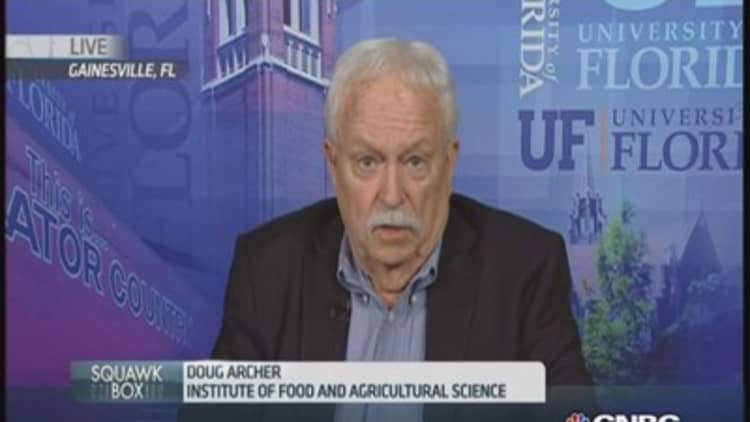Already reeling from a handful of scandals, Japan's fast-food industry faces a new problem: diners are no longer heading out for meals like they used to.
"Japanese consumers are choosing to buy their meals at convenience stores and eat at home," said Japan Food Analyst Association (JFAA) chairman Hiroyuki Kamiya.
While the trend started a few years ago as convenience stores introduced new product lines, the consumption tax hike to 8 percent from 5 percent last April that pushed the economy into a technical recession and a string of employee exploitation scandals have accelerated the trend, he said.
Fast food consumption has been declining since the tax hike took effect, with the number of customers falling between one and five percent every month since April, according to Japan Food Services Association (JFSA). Overall, the number of fast food customers declined 2.9 percent on year in 2014.
By contrast, sales at 7-Eleven – Japan's biggest convenience store chain – have risen for 29 consecutive months on an annual basis, according to company spokesperson Hisayasu Yamane. The expanded "7-Eleven Premium" take away line up has been particularly popular, he said.
When Japanese consumers do dine out, they opt for high-end fast food more often and spend more. "Dinner restaurants," which charge an average of over 2,000 yen per person ($16.93), saw on-year sales rise four percent in 2014, amid a 1.5 percent increase in customers.

"Some people are tired of counting their pennies all the time, and are indulging in what they see as small luxuries," said JFAA's Kamiya.
McDonald's upsizes sector woes
One of the main culprits behind the sales decline is scandal-plagued McDonald's Japan, which "is the largest hamburger chain in Japan and has a big effect on the overall numbers," according to JFSA's Matsuzaki.
The so-called China chicken scandal coupled with a string of alleged "contamination" cases and a shortage of french fries in Japan, is taking its toll on sales. Same store sales at McDonald's Japan plunged 21.3 percent on-year in December, dragging down total "western-style" fast food sales by 5.4 percent.
The fall-off in Japan had the "most significant impact" on the drop in sales at McDonald's across the Asia Pacific region and contributed to a 0.9 percent fall in comparable group sales in the fourth-quarter of 2014 at the parent group level.
Labor violations
Widely reported employee abuse is also keeping customers away, said JFAA's Kamiya.
The most recent case to grab headlines was Sukiya, a beef rice bowl chain run by Zensho Holdings, Japan's biggest fast food store operator. After having forced to close, entirely or partially, 123 stores by last April because it couldn't secure enough staff, the company commissioned external lawyers to report on labor conditions at the stores.
Read MoreThird strike for McDonald's Japan
Among the list of labor violations discovered: not allowing breaks, not paying overtime, making foreign students work longer hours than legally permitted and exposing employees to a "considerable" number of hold ups by forcing them to work night shifts alone.
These violations have pushed many clients away: between last October and December, the number of customers at Sukiya plunged by an average 7.1 percent (on-year, not adjusting for stores that were temporarily closed).
The end of cheap, one size fits all
The Japanese market is maturing and evolving, said JFAA's Kamiya.
Now that many people chose to only go out to eat as an indulgence, "the future is in offering choice, rather than a standardized set menu," he said, "especially as the race to the bottom on prices at the restaurants offering standardized set menus is now seen by the public as the root cause of employee exploitation."
Companies need to strike the right balance between affordable pricing and quality – but with an emphasis on quality, said 7-Eleven's Yasune. The company revamped its takeaway food line in anticipation of the April consumption tax hike.
"Our strategy is to offer a buffet style choice of takeaway dishes – everything from salads to rice balls to pasta," he said. 7-Eleven has been doing a roaring trade since, according to Yasune.

